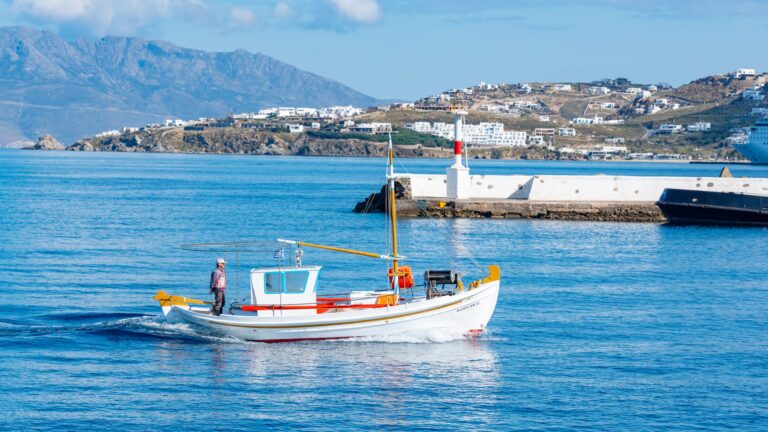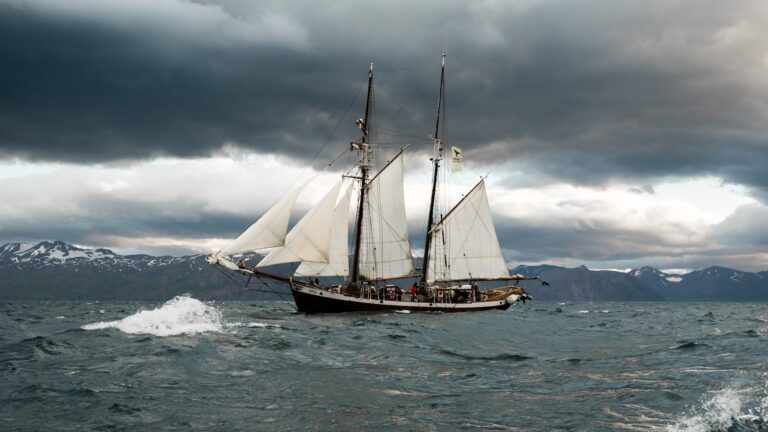How Many Years Does It Take To Become a Seaman?
Becoming a Seaman: How Long Does it Take?
Sailing the open seas is one of the most adventurous and exciting jobs out there, and for those who are looking to become a seaman, it takes four years of rigorous training and hard work to do so.
In this article, we will dive deep into all aspects related to becoming a seaman, from what qualifications are needed to what the four-year course consists of, as well as the benefits and challenges that come with this job title.
What Is a Seaman?
A seaman is someone who operates or navigates ships over oceans, seas, lakes and rivers for cargo transportation or leisure activities such as fishing or sightseeing tours. The position usually requires considerable knowledge and experience in navigation, marine safety regulations and procedures, ship handling and other maritime disciplines.
A seaman may also be responsible for the maintenance and repair of on-board equipment such as engines, navigation systems, medical supplies and food services – all depending on their rank aboard the vessel they are working on.
Qualifications Needed to Become a Seaman
In order to become a seaman, an individual must possess certain qualifications such as certification in Basic Safety Training (BST), Personal Survival Techniques (PST), Fire Prevention & Fighting (FPFF) and Elementary First Aid (EFA).
They must also have experience in seamanship operations such as anchoring, mooring procedures and basic navigation skills such as plotting courses on nautical charts using GPS systems.
In addition to these qualifications, many employers also require that prospective seamen have prior experience working on vessels or in related industries like fishing or engineering before they can become certified sailors.
What Is The Four-Year Course?
It is a four-year residency course consisting of a three-year academic studies (1st, 2nd and 4th year) and one year shipboard training (3rd year) on board commercial vessels plying the international sea lanes as deck cadets – learning from experienced officers how to navigate ships safely from port to port through storms or heavy weather conditions while following all necessary maritime regulations along the way.
During this coursework students learn about topics like meteorology, navigation rules & regulations, engine room operations & maintenance, cargo handling & stowage principles in addition to other useful skills required for working at sea such as firefighting techniques & damage control procedures among others.
Students also get hands-on training at sea during their 3rd year where they gain valuable practical experience in their field before they can be considered qualified seamen by employers in their respective countries or jurisdictions worldwide upon graduation from this program/coursework after 4 years of study & training both ashore & afloat in order to obtain their certificate of competency as professional seafarers known commonly by its acronym COCP (Certificate Of Competency Professional).
First Year of Training
The first year focuses mainly on theoretical studies with classroom sessions covering topics like Navigation Principles & Rules Of The Road, Ship Handling & Stability, Meteorology, Search & Rescue Procedures, Marine Pollution Prevention, Ship Security Awareness, International Maritime Regulations including SOLAS (Safety Of Life At Sea) & COLREGS (Convention On The International Regulations For Preventing Collisions At Sea), Radio Communication Procedures including GMDSS (Global Maritime Distress And Safety System), Personal Survival Techniques, Firefighting Procedures, First Aid among other topics related directly with seafaring activities around the world during this 21st century era where safety standards are continuously increased by National Maritime Authorities across different jurisdictions worldwide in order to reduce accidents at sea caused by human negligence or careless behavior from crew onboard vessels operating under specific flags due its relevance on commerce activities between countries globally which could be severely affected if these standards were not enforced properly by governments authorities involved with shipping activities around our planet Earth’s oceans/seas/lakes/rivers etc.
Second Year of Training
The second year focuses mostly on practical shipboard training while underway which includes steering watches/duties while navigating vessels under supervision from experienced officers onboard so trainees can learn how to command ships safely following all necessary maritime regulations while performing different manoeuvres at sea like anchoring/mooring operations among other tasks related directly with daily vessel operations at sea including emergency drills such as firefighting tactics/procedures which are very important when operating vessels especially those carrying highly inflammable cargoes like petroleum based products which may explode causing severe damages not only onboard but also polluting our oceans if proper emergency drills are not performed timely onboard when needed due its relevance for crew safety onboard vessels operating everywhere across different jurisdictions around our planet Earth’s waters worldwide nowadays due its importance for international commerce activities between countries involved which could be severely affected if these procedures were not followed properly by crewmembers onboard sailing around our planet’s oceans/seas/rivers etc.
Third Year of Training
The third year focuses mainly on shipboard duties while underway where trainees gain much needed practical experience under supervision from experienced officers onboard so they can learn how to command ships safely following all necessary maritime regulations while performing different manoeuvres at sea like anchoring/mooring operations among other tasks related directly with daily vessel operations at sea including emergency drills such as firefighting tactics/procedures which are very important when operating vessels especially those carrying highly inflammable cargoes like petroleum based products which may explode causing severe damages not only onboard but also polluting our oceans if proper emergency drills are not performed timely onboard when needed due its relevance for crew safety onboard vessels operating everywhere across different jurisdictions around our planet Earth’s waters worldwide nowadays due its importance for international commerce activities between countries involved which could be severely affected if these procedures were not followed properly by crewmembers onboard sailing around our planet’s oceans/seas/rivers etc.
Fourth Year of Training
The fourth year focuses mainly on concluding academic studies related directly with seafaring activities plus exams preparation so trainees can obtain their certificate(s)of competency professional (COCP) issued by National Maritime Authorities upon successful completion from this program after 4 years studying both ashore & afloat in order to obtain their certification(s)of competency professional(s)as professional seafarers known commonly by its acronym COCP(Certificate Of Competency Professional).
After obtaining these certificates then they will be eligible for employment opportunities at sea either commanding merchant navy ships or working in yacht clubs around the world depending each individual’s interest once they complete this four-year residency course successfully meeting all requirements set forth by National Maritime Authorities across different jurisdictions worldwide nowadays thus allowing them becoming certified seamen ready for challenging yet rewarding careers aboard merchant navy vessels plying international waters either carrying passengers or cargoes between ports located anywhere across our planet Earth’s seas/oceans etc. .
Benefits And Challenges Of Being A Seaman
Being a seaman comes with many benefits including competitive salaries compared to other professions plus great opportunities for travel around the world depending each individual’s interest once they complete this four-year residency course successfully meeting all requirements set forth by National Maritime Authorities across different jurisdictions worldwide nowadays thus allowing them becoming certified seamen ready for challenging yet rewarding careers aboard merchant navy vessels plying international waters either carrying passengers or cargoes between ports located anywhere across our planet Earth’s seas/oceans etc.
On top of that there is also free accommodation provided whilst at sea plus free meals depending each company’s policy thus making this profession even more attractive nowadays despite some challenges being faced while working at sea like long periods away from families due changeovers every few months plus potential dangers associated with working outdoors during heavy weather conditions requiring extra caution from crew members especially when navigating ships during storms thus making it even more challenging but yet rewarding profession out there since it requires lots dedication plus commitment from individuals willing taking part into merchant navy services worldwide nowdays regardless age nor gender thanks modern technology advances allowing anyone interested participating into seafaring activities nowadays regardless his nationality nor background being faced when entering into merchant navy services nowadays since everyone receive equal chances being part from merchant navy services once he fullfills all requirements set forth by National Maritime Authorities across different jurisdictions worldwide nowadays thus allowing anybody interested obtaining his certificate(s)of competency professional(s)in order being employed aboard commercial vessels plying international waters anywhere across our planet Earth’s seas/oceans etc.
Conclusion
Becoming a seaman takes dedication and hard work – it is no easy feat! But once you have completed your four-year course consisting of three years academic study and one year shipboard training you will be equipped with all the knowledge you need in order to pursue your career dreams! With that said however it should also be noted that there are certain risks associated with being a seaman due to environmental conditions encountered whilst out at sea which could present some challenges – but overall being able to explore new places whilst travelling across vast oceans is an amazing opportunity that shouldn’t be overlooked! So if you’re looking for an exciting career choice that will take you places then perhaps becoming a seaman is worth considering.







